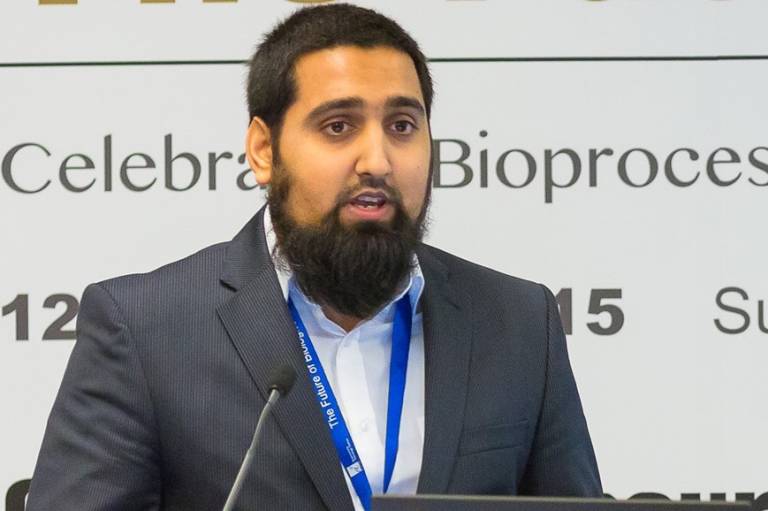We're excited to have innovators and world leaders in the healthcare engineering field join our new Management Board. Over the upcoming weeks, we will be introducing you to the full team.

Working at the cutting-edge intersection between biology, chemistry and engineering, Qasim focuses on the biomanufacture of the very latest advanced therapeutics, including regenerative, cellular and gene based therapy.
His current focus is tackling the challenges of translating these advanced therapies from the laboratory to industrial and clinical use. This includes the “whole bioprocess” from sourcing of raw materials and cells, through cell expansion in bioreactors and ultimately the downstream processing needed to purify and concentrate cell product for delivery to the patient.
Much of Qasim’s activity is in tight collaboration with industry partners, maximising his research’s translational impact. He leads a research portfolio of over £1.5M including two recent Innovate UK grants. One of these grants is in collaboration with Aglaris, specialists in manufacturing cells, that aims to improve the scalability, quality and costs of T cell manufacturing for cancer therapies and the other with Biovault Technical, a UK-based umbilical cord blood and tissue bank, to develop a scalable and reproducible manufacturing platform for research-grade stem cells.
Qasim works within the UCL Department of Biochemical Engineering as a Senior Lecturer in Bioprocessing of Regenerative, Cellular and Gene Therapy.
What is the highlight of your career so far?
Being able to work closely with industry and clinicians to deliver meaningful and impactful solutions to developing new technologies, expediting the manufacture of new therapies. A key example is the €6M Autostem project involving 10 different EU partners to develop an automated manufacturing facility for human stem cell production. It is through these kind of multidisciplinary collaborations that advancements are made.
What is the most valuable lesson you’ve learnt during your career?
Significant impact arises through effective collaboration and multidisciplinary teams working together to achieve a clear goal. Leaving ‘ego’ at the door and pooling the experience and expertise of others allows us to think creatively for new solutions and make meaningful change. In order to continue to develop new therapeutic and healthcare interventions we need to ensure improved industry, academic and clinical collaborations.
 Close
Close

